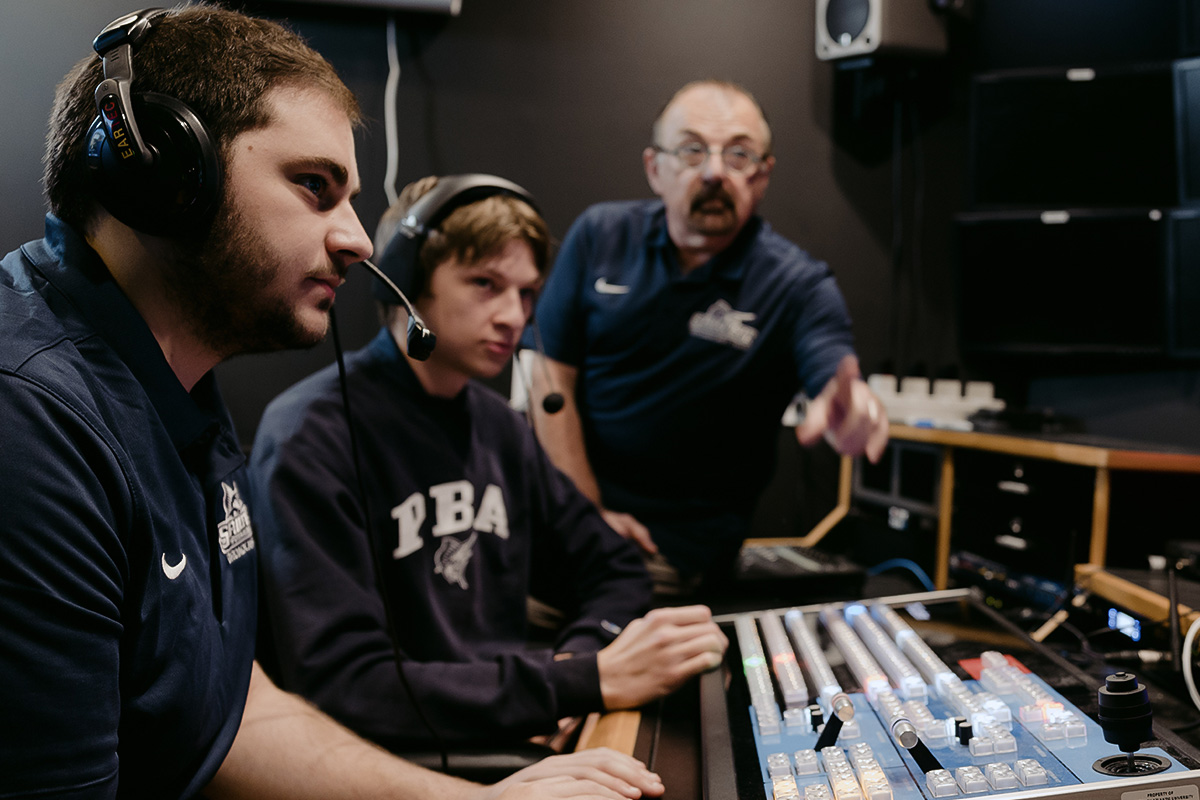What is a Sports Commentator?
A sports commentator is the person you hear when you’re watching a sporting event. They cover the play-by-play action of a game as it unfolds, often offering insight into the players and information about the sport.
Often, these professionals work for a specific club or a tv network. They can also work for radio, podcasts, or write blogs for other websites.
A Day in the Life of a Sports Commentator
Most sports commentators work a standard 40 hour week, though these hours tend to be during evenings and weekends when most sporting events occur. Each week’s schedule may look different depending on the role and the current sporting season. Some sports commentators may work from home, while others will work directly at a sporting event.
Here are some examples of what you might do on a shift:
- Report live at a game, getting the crowd excited and sharing play-by-play updates to your audience
- Writing content for websites
- Operating a video camera or audio equipment during a game
- Reporting on the wins and strategy of a team
- Sharing information about a specific player’s stats and history
- Analyzing a specific game, league, or sport
- Interviewing fans and players
Steps to Become a Sports Commentator
Almost all sports commentator jobs will require at least a bachelor’s degree in a relevant field. One of the best and most applicable degrees to earn would be a Bachelor of Arts in Sports Broadcasting.
In a sports broadcasting degree, you’ll take classes such as:
- Digital Video Production
- Non-Linear Editing
- Foundations of Journalism
- News Reporting
- Broadcast Journalism
- Introduction to Sports Broadcasting
- Introduction to Live Sports Production
- Producing Live Sports
- Sports Media Postproduction
- Sports Broadcasting Performance
- Sports Documentary Production
Other relevant degrees that may qualify you for a career in sports broadcasting include communications, journalism, media, or television broadcasting.
Even if you don’t end up becoming a sports commentator, a degree in sports broadcasting can prepare you to work in media and communications.
Sports broadcasting students will gain broadly-applicable skills that can be put to use in many different employment contexts.
Gaining experience in the sports broadcasting industry is equally as important as earning a degree. Universities often require an internship or field experience as part of the degree program.
At Palm Beach Atlantic University, students complete a sports broadcasting internship their senior year that gives on-the-job experience in the sports broadcasting industry.
Completing an internship also helps you create a network within the industry, and sometimes can lead to a job after graduating.
Other ways to earn experience are to practice being an announcer at your university’s sports games, coach a sport’s team, write for your school or local newspaper, or join a broadcasting team at your school.
Public speaking skills are essential for succeeding as a sports broadcaster. You’ll need to be comfortable in front of the camera and have the ability to report on events in real time. Practice turning on a sporting event with the volume off and report on the game. This will help you become more comfortable with improvising on-the-spot.
Many creative media jobs require a portfolio of your work when applying for jobs, and sports commentating is no different. However, aspiring sports broadcasters need to have a portfolio of videos, or reels, showcasing their skills.
This portfolio can include clips from real experience in radio and television, or practice tapes from production labs if you don’t have actual air time. Make sure the audio and visual quality of the recording are high and ask a professional in the industry to provide feedback on your portfolio to make sure it is as impressive as possible.
Landing your dream job in sports commentating might not happen right away, and that is okay! Start by applying to local radio and television stations, and don’t be afraid to start in an entry-level position. You’ll be able to work your way up as you gain experience and expand your network.
Speak to your professors about any opportunities or events they may know of to meet other sports commentators and find internship and job openings.
Start your Career as a Sports Commentator Today!
Palm Beach Atlantic University’s Bachelor of Arts in Sports Broadcasting is a great step toward fulfilling your dream of becoming a sports commentator.

